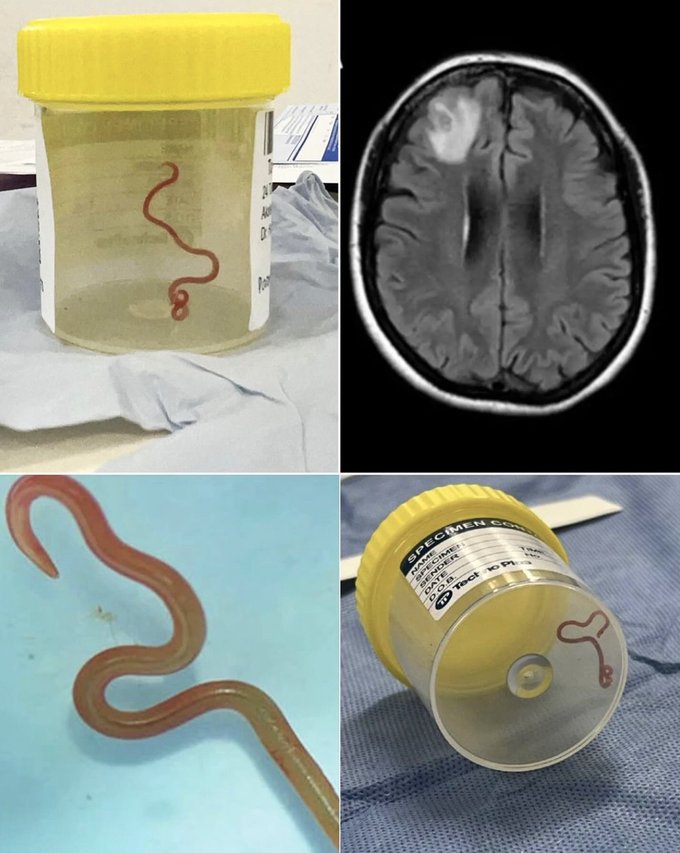


Neurosurgeon removes live 8cm long worm from woman's brain!!
Scientists last month published an unprecedented case, where they found and extracted a live parasitic worm from the brain of a 64-year-old Australian woman. The neurosurgeon found and removed the parasite with forceps during a biopsy, from within the lesion shown on the MRI (light gray area). "I used tumor-holding forceps and lifted out something that I definitely was not expecting: a linear, squiggling line, and my junior doctor said, 'is that an artery?', because that's what it looked like. And I said, 'it's not an artery, we're nowhere near any artery!' And I noticed it was moving and I went, 'just get it out of my forceps!' So we rapidly put it in a pathology pot, and it was a vigorously wriggling worm." Symptomatically, weeks of abdominal pain and diarrhea led to night sweats and a dry cough, but evolved towards problems like forgetfulness and depression, presumably as the worm׳s activities kept affecting different parts of the brain. The worm was some 8 centimeters (just over 3 inches) long and is a rare parasite called Ophidascaris Robertsi. This is a type of Roundworm (Helminth). This roundworm usually lives in a Carpet Python. The eggs of the worm are around the snakes’ faecal droppings, which infect the grass. This grass containing the eggs, are eaten by small mammals, who are then eaten by the Carpet Python. This is how this worm gets cycled between its two hosts. This woman became an 'accidental host'. She lived near the carpet python habitat and while foraging the native vegetation for cooking, she ingested the worm eggs. The worm developed in her intestine and travelled via blood circulation to her brain. In response, the body produces inflammation around the worm and as a result, an area of inflammatory tissue or granuloma develops in the brain. Depending upon the affected location, it can cause a multitude of symptoms such as pressure symptoms - headache, vomiting, visual blurring, confusion, altered sensorium, cognitive symptoms - forgetfulness, problems in understanding, calculations, disorientation, seizures and epilepsy - due to irritation of the brain by inflammatory tissue.

